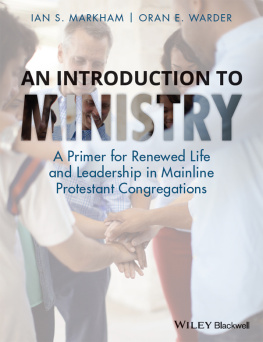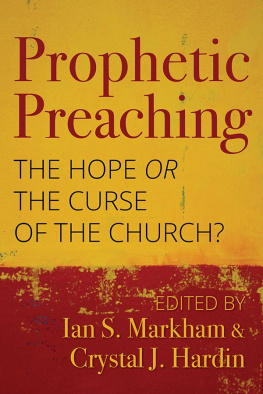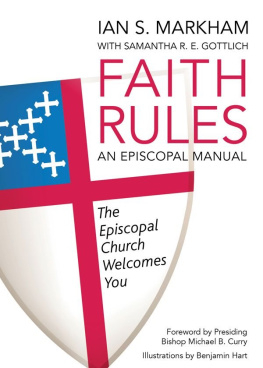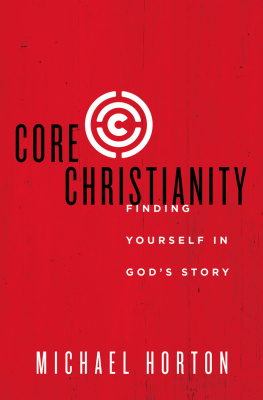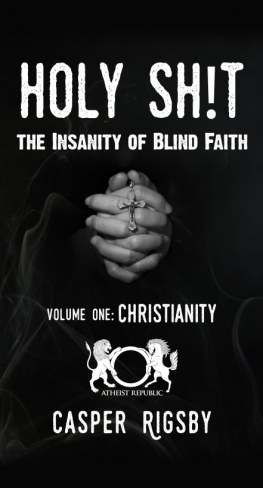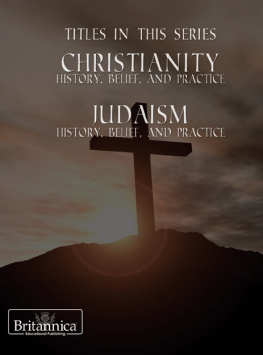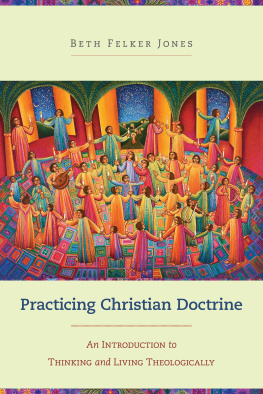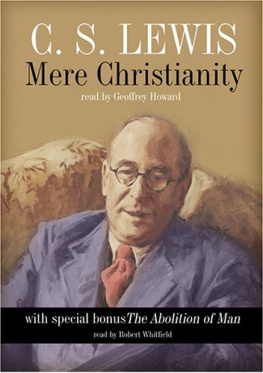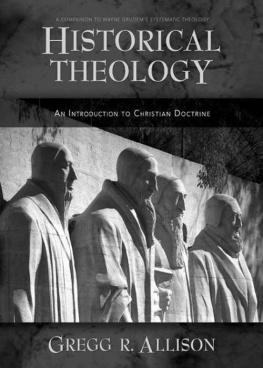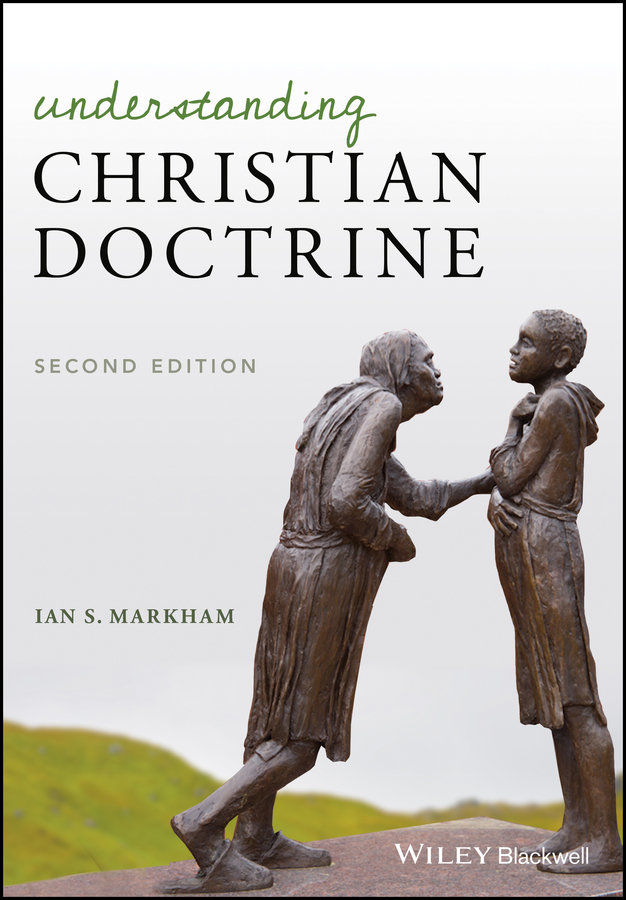
Table of Contents
Guide
Pages
Understanding Christian Doctrine
Liberal and orthodox, clear and reliable, readable and illuminating, I strongly commend this book to all who are interested in modern Christian thought.
Canon Keith Ward, University of Oxford
The second edition of Understanding Christian Doctrine presents a completely updated and revised edition that builds on the most popular features of the first edition to offer a lively overview to the central beliefs of Christianity. Ian S. Markham, a noted authority of Christianity, discusses the great thinkers of the Christian tradition and puts them in conversation with contemporary progressive theologies in a book that goes from Augustine, Aquinas, and Luther to Liberationist, Feminist, and Queer theologies. Designed to be a basic primer, the text is written in a manner that assumes the reader has no prior knowledge of theology or Christian doctrine.
The book is designed to present the basic options in all the key areas of Christianity as well as information on how to make complex theological decisions. The author tackles all the key questions from creation to eschatology. Furthermore, Markham makes his own distinctive contribution: he argues that theodicy (traditionally seen as a major difficulty with belief) is actually a theme that links many aspects of Christian doctrine.
The text is ideal for anyone interested in learning about the foundations of Christianity as well as new ideas about the faith. Christianity is presented in a manner that embraces the richness of the tradition and affirms the central claims of the historical creeds, while engaging with liberationist challenges to the tradition.
Ian S. Markham is the Dean and President of Virginia Theological Seminary and Professor of Theology and Ethics. Previously, he was Dean of Hartford Seminary, Connecticut and Professor of Theology and Ethics.
Understanding Christian Doctrine
Second Edition
Ian S. Markham
This second edition first published 2017
2017 John Wiley & Sons Ltd
Edition history: John Wiley & Sons Ltd (1e, 2007)
All rights reserved. No part of this publication may be reproduced, stored in a retrieval system, or transmitted, in any form or by any means, electronic, mechanical, photocopying, recording, or otherwise, except as permitted by law. Advice on how to obtain permission to reuse material from this title is available at http://www.wiley.com/go/permissions.
The right of Ian S. Markham to be identified as the author of this work has been asserted in accordance with law.
Registered Offices
John Wiley & Sons, Inc., 111 River Street, Hoboken, NJ 07030, USA
John Wiley & Sons Ltd, The Atrium, Southern Gate, Chichester, West Sussex, PO19 8SQ, UK
Editorial Office
9600 Garsington Road, Oxford, OX4 2DQ, UK
For details of our global editorial offices, customer services, and more information about Wiley products visit us at www.wiley.com.
Wiley also publishes its books in a variety of electronic formats and by printondemand. Some content that appears in standard print versions of this book may not be available in other formats.
Limit of Liability/Disclaimer of Warranty
While the publisher and authors have used their best efforts in preparing this book, they make no representations or warranties with respect to the accuracy or completeness of the contents of this book and specifically disclaim any implied warranties of merchantability or fitness for a particular purpose. No warranty may be created or extended by sales representatives or written sales materials. The advice and strategies contained herein may not be suitable for your situation. You should consult with a professional where appropriate. Neither the publisher nor authors shall be liable for any loss of profit or any other commercial damages, including but not limited to special, incidental, consequential, or other damages.
Library of Congress CataloginginPublication data applied for
Paperback ISBN: 9781118964736
Cover Images: Mary as Prophet He has filled the hungry with good things
Luke 1:53, bronze (2015), Margaret Adams Parker, www.margaretadamsparker.com
Image adapted from a photograph by B. Cayce Ramey; (background) Ingunn B. Hasleks / Getty Images
Cover Design: Wiley
For my stylish and
impressive
nieces
Nicola Johnson,
Abbie Furnival,
Lizzie Markham,
Ellen Sowden
Preface to the Second Edition
This is the textbook with an edge. Naturally, understanding the traditional options is important. This edition aspires to ensure that is still the case. But twentyfirstcentury theology needs to be in conversation with the challenges of our age. We need to make sure that the voices of the historically invisible women, minorities, persons of color are heard. This is a deliberately edgy volume.
This new edition aspires to combine traditional approaches to theology with the more contemporary, identityfocused approaches. This is the first time a textbook book has made this an explicit goal: there are plenty of texts that are traditional in approach and plenty of texts that make feminism or liberation theology central, but this is the first text to combine the two.
It has been satisfying to find colleagues in the academy appreciate the distinctive approach of this textbook. One joy of writing for a publishing house of such excellence as Wiley Blackwell is that they work extremely hard to ensure that they collect hard data on which an author can modify a book. The data showed that teachers in theology appreciated the distinctive methodology and the aspiration to show not simply the options in theology but also how one might make decisions. Therefore this feature remains central.
The data did suggest certain changes. Therefore this edition has the following additions: First, the historical description of the development of doctrine needs to be supplemented with a greater emphasis on contemporary approaches to theology, especially those emerging from feminist and liberationist perspectives. For a textbook that aspires to be liberal in approach, it is embarrassing that the first edition is so totally dominated by white Western men. Second, there were sections in need of improvement for example, Moltmanns Social Trinity needed a more sympathetic presentation. Third, the first edition appeared in 2008. Naturally, since then, debates have moved on and new questions have emerged. So a general updating was necessary.
One last change is worth highlighting. One goal of this text is to introduce the basics and model decision making. In every chapter, I become a participant in the discussion. Now my own mind has changed. So careful readers will find that there are different emphases in certain places. Perhaps the best example is , The Theistic Claim. In the first edition, I argued that faith is rationally plausible and that treating the arguments inductively should perhaps produce a person of faith. In this edition, I see the arguments as supportive of an experience that sees the transcendent all around us. This is, of course, totally part of the methodology advocated in this book. Theology is a constant life challenge. It lives with you; the questions are revisited and revised. We are exploring the most complex topic in the world; it is not surprising that we find ourselves reexamining an assumption or an approach. This is just the nature of the business.
Next page

